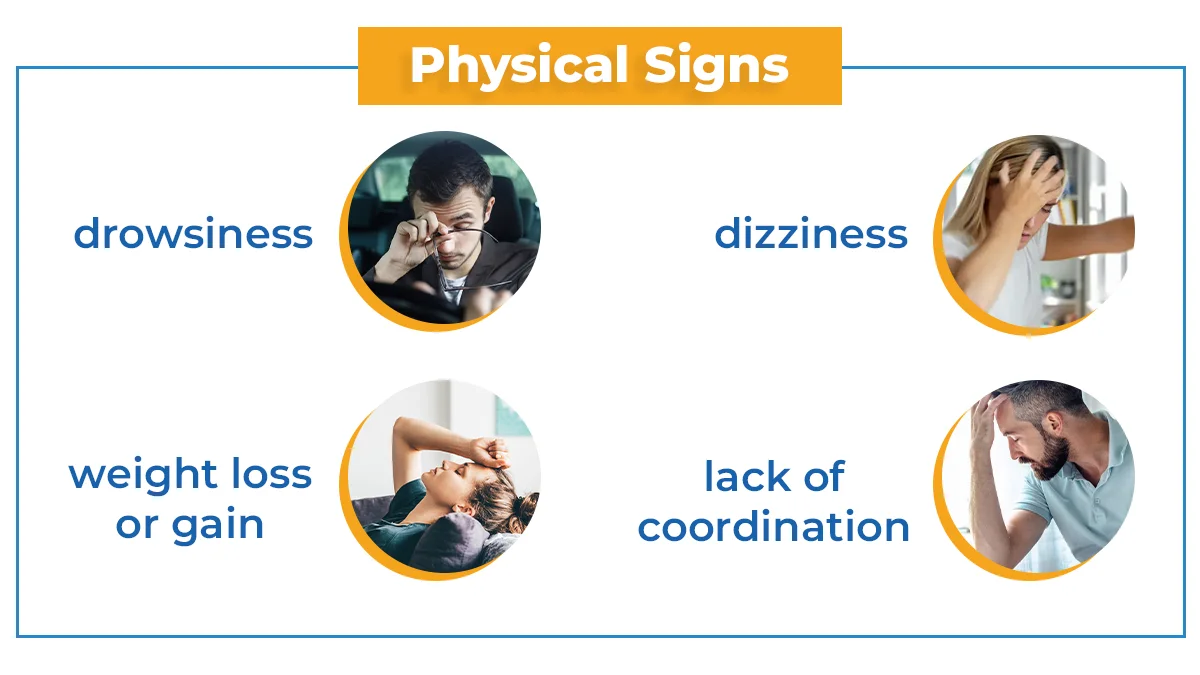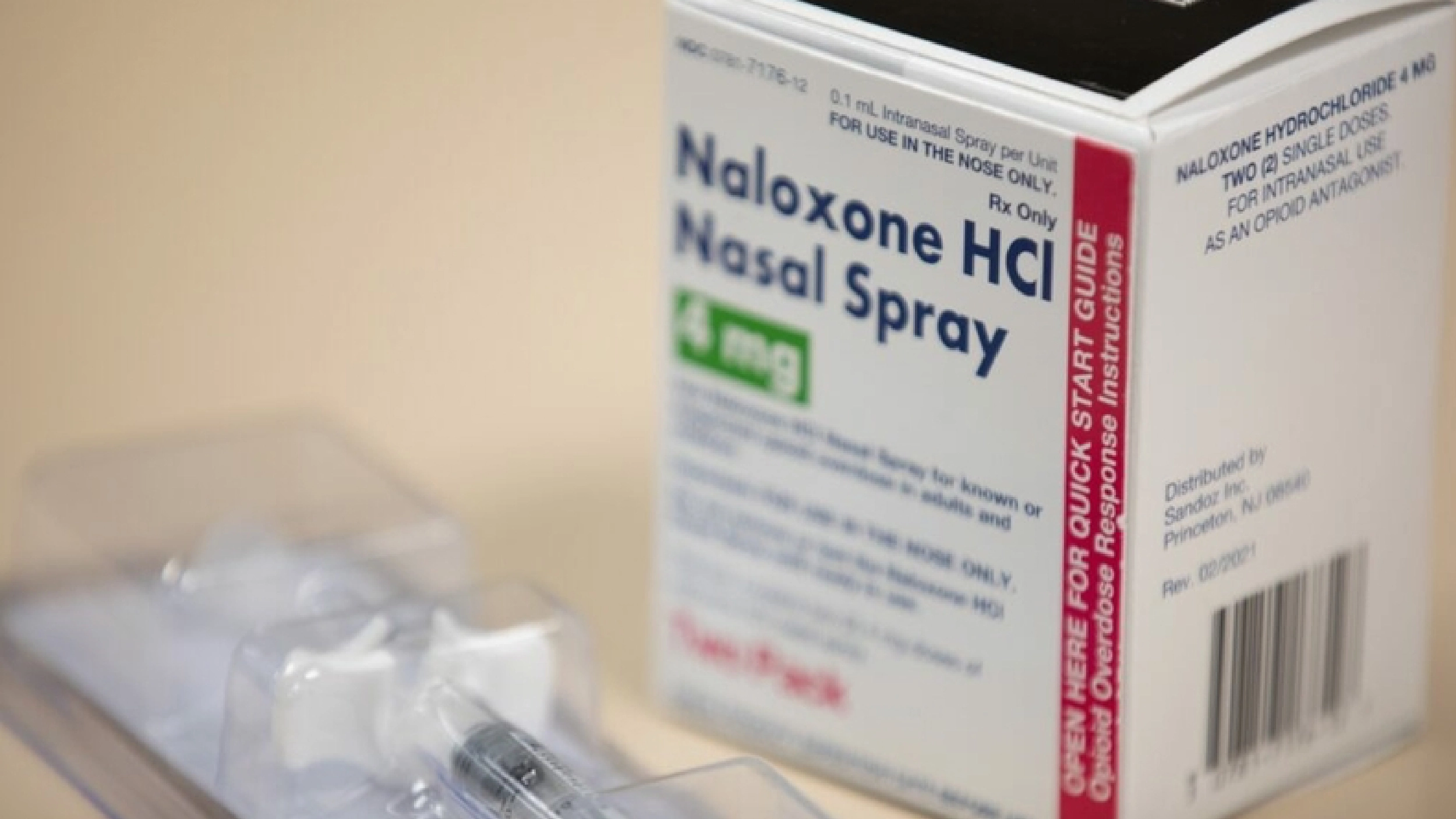
A Guide To Repairing Family Relationships
Discover expert tips for repairing family relationships and fostering healthy connections with The Recovery Team.

Benzodiazepine addiction, linked to drugs prescribed for panic disorder, poses risks due to long-term use. Recognizing withdrawal symptoms is crucial for early intervention.
Moreover, identifying risk factors, such as a history of substance abuse, is essential for prevention. Keep reading to learn how to spot benzodiazepine addiction and how to address these warning signs.
Learning about benzodiazepine addiction signs can aid in understanding the intensity of your condition. Here’s what you need to know:
The Recovery Team is here to help you battle against addiction. Call us today at (800) 817-1247.
Understanding benzodiazepine addiction is crucial, as long-term use and misuse of these prescription drugs can lead to substance addiction. Benzodiazepines affect the central nervous system, calming the brain and alleviating anxiety.
However, when individuals use them beyond prescribed limits or combine them with other substances like opioids, it can result in benzodiazepine abuse. The combined effects on the brain amplify the risk of developing an addiction.
Recognizing early signs, such as increased tolerance and continued use despite consequences, is key to preventing and addressing benzodiazepine addiction. Education about the potential dangers of prolonged use and misuse can help individuals make informed decisions about their health.
Benzodiazepine use in the United States is a significant concern, as per data from the National Institutes of Health. Annually, 30.6 million adults, constituting 12.6 percent of the population, reported past-year benzodiazepine use. Among these, 25.3 million (10.4 percent) used benzodiazepines as prescribed, while 5.3 million (2.2 percent) engaged in misuse. Notably, misuse accounted for 17.2 percent of overall benzodiazepine use.
Age-specific trends reveal that adults aged 50–64 had the highest prescribed use at 12.9 percent. In contrast, individuals aged 18–25 showed a misuse rate of 5.2 percent, while those aged 65 and above had the lowest misuse rate of 0.6 percent.
The data also highlights a strong association between benzodiazepine misuse and the misuse or dependence on prescription stimulants or opioids. These statistics underscore the need for awareness about additional signs and intervention strategies to address benzodiazepine-related issues.
Benzodiazepine addiction can manifest through various physical, mental, and behavioral signs. Learning about these signs can help you to seek professional help and guidance about treatment.
Benzodiazepine addiction manifests through various physical signs that can serve as early indicators. Individuals struggling with addiction may experience drowsiness, dizziness, and an overall lack of coordination.
Slurred speech and impaired motor skills are also common, making it challenging for them to perform regular activities. Additionally, changes in appetite and weight, either significant weight loss or gain, may be observed.
Mental signs of benzodiazepine addiction are closely tied to the impact of these drugs on the central nervous system. Individuals may exhibit memory issues, including forgetfulness and difficulty concentrating.
The cognitive functions of an individual may be impaired, leading to confusion and a general sense of mental fog. Moreover, benzodiazepine abuse can contribute to heightened anxiety and irritability, exacerbating existing mental health challenges.
Emotional and behavioral signs play a crucial role in recognizing benzodiazepine addiction. Individuals may display mood swings, ranging from euphoria during the drug’s effects to increased agitation when its effects wear off.
Persistent drowsiness can lead to social withdrawal, as affected individuals may isolate themselves from friends and family. Changes in sleep patterns, such as insomnia or excessive sleeping, can also be indicative of benzodiazepine addiction.
Behavioral changes may include secretive behavior related to drug use, neglecting responsibilities at work or home, and a decline in personal hygiene. Financial difficulties may arise as individuals prioritize acquiring benzodiazepines over other essential needs.
Benzodiazepine withdrawal can be risky, especially for those with physical dependence. Additionally, teens or patients misusing benzodiazepines face increased dangers, including potential opioid overdoses. Seeking professional help is crucial, as withdrawal symptoms from this class of drugs, known for their sedative effects, act on the central nervous system (CNS). Here are the withdrawal symptoms that you may experience when quitting the drug use:
It’s vital to recognize and address withdrawal symptoms promptly to understand the potential dangers. Seeking professional guidance ensures a safer journey through the withdrawal process, minimizing risks and promoting overall well-being.
Benzodiazepine addiction poses various health risks, affecting individuals both in the short-term and long-term. Recognizing the risks associated with benzo addiction is essential, promoting informed decisions about the responsible use of these prescription substances.
In the short term, benzo addiction can lead to immediate health concerns. Overuse poses a risk of accidental injuries and accidents due to impaired judgment.
Overdose is a critical risk, especially when individuals engage in benzo abuse, surpassing prescribed limits. That can result in a slowed heart rate, impacting everyday lives. Benzodiazepine use disorder may develop rapidly, causing significant problems, as the calming effect on the brain’s GABA receptors becomes excessive.
Long-term benzodiazepine use raises additional health risks. Prolonged use can lead to the development of benzodiazepine use disorder, as individuals may become dependent on the calming effects. The risk of adverse side effects increases, impacting both physical and mental well-being.
Heart rate irregularities may persist, contributing to ongoing health issues. Continued use can also interfere with the body’s natural stress response, potentially exacerbating trauma or other mental health disorders.
Effective treatment and recovery from benzodiazepine addiction involve comprehensive approaches that address physical and psychological aspects.
Detoxification, or detox for short, is often the first step in benzo addiction treatment. Under the guidance of medical professionals, people gradually stop taking benzodiazepines to allow their bodies to adjust.
That helps minimize withdrawal symptoms and lowers the risk of overdose. Emergency room visits might be necessary in severe cases. Medical help in a structured treatment program is crucial during detox to ensure safety and comfort.
Therapy plays a vital role in addiction treatment. Counseling sessions with doctors or trained professionals help individuals understand and address the root causes of their addiction. Group therapy, where people share their experiences, can provide valuable support.
Aftercare is the ongoing support individuals receive once formal treatment ends. That may include therapy sessions, medications, or support from family members. It’s important to recognize that benzo addiction treatment is a journey, and ongoing care is essential to maintain recovery.
Benzodiazepine misuse can have a long-term impact on your life. You can get back control of your life by getting the treatment you need from The Recovery Team.
We provide residential rehab services during benzodiazepine treatment and ensure that you feel comfortable during your stay. To improve your chances of recovery, we offer an anti-craving program that includes medication and counseling sessions.
Recovery is possible. Call us today at (800) 817-1247.

Discover expert tips for repairing family relationships and fostering healthy connections with The Recovery Team.

Discover practical tips on how to set boundaries with people in this expert guide from The Recovery Team.

Naloxone saves lives. The Recovery Team shares how to reverse an opioid overdose with this drug.
Benzodiazepines can be addictive, especially with prolonged use. Misuse, such as doctor shopping or exceeding prescribed doses, may lead to benzodiazepine dependence.
High levels of stress can exacerbate this risk. Though commonly prescribed for anxiety and sleep disorders, they carry the potential for addiction and benzodiazepine overdose.
Common side effects of benzodiazepines include drowsiness, dizziness, and feeling sleepy during the day. They can also cause coordination problems, making walking or driving difficult. Some people may experience blurred vision or have trouble concentrating.
Other possible side effects are changes in appetite, headaches, and confusion. While these effects can be normal, it’s essential to talk to a doctor if they become severe or persistent.
The main danger of using benzodiazepines in a way that a doctor does not prescribe is that it can lead to addiction. That means your body and mind become dependent on the medicine, and it can be tough to stop using it.
Addiction can cause serious problems in your health, how you feel mentally, your relationships, and your overall life. It’s important to get help from a doctor if you’re using benzodiazepines in a way that’s not prescribed to you to avoid these risks.